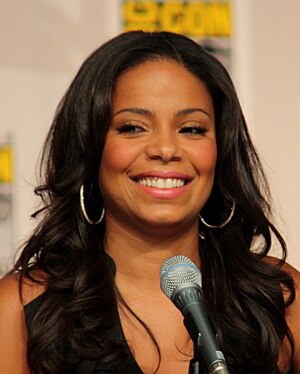“Black” cinema in America still has not reached a level of high merit, as evidenced by the content in Malcolm D. Lee’s The Best Man Holiday (2013).
That I never saw the 1999 flick The Best Man, to which this is a sequel, hardly prevents me from forming a proper opinion of the current film, which I see as superior to something like Lottery Ticket but not even as palatable as the Sanaa Lathan vehicle, Something New. Lathan is in the Lee film, too, and as usual she’s decidedly effective. She never blows it with facial play, timing, or restraint; but, moreover, she’s part of a mostly agreeable cast. Terrence Howard is okay in his role, but the comic character he plays is slimy and offensive. And here’s where the flaws come in.
Critic Stephanie Zacharek at The Village Voice appreciates the movie’s “joyousness” and doesn’t want to talk about the flaws (“flaws be damned”). I agree that a joyousness is there, but I’m not very impressed by it—because the flaws ruin the picture. For one thing, Holiday loses its edge and becomes maudlin. For another, its spirituality is nothing more than pseudo-spirituality. (The holiday in the title, by the way, is Christmas.) Along with utter bawdiness, there is in the film a superficial Christianity—Monica Calhoun’s “Christian” Mia mentions a woman with a “big booty” whom she hates—of which I want no part.




